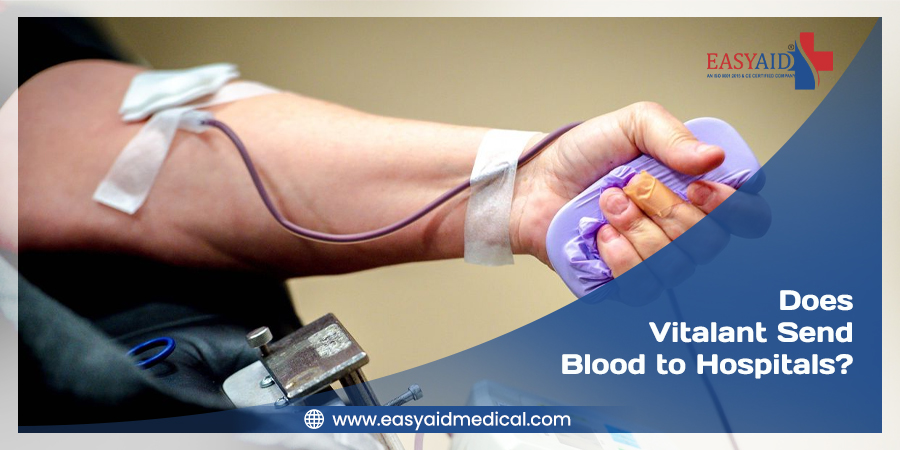Does Vitalant Send Blood to Hospitals
By collecting preserving and distributing blood and blood products to hospitals and patients in need. One of the largest charity blood service suppliers in the country, Vitalant is quite important for the healthcare system. Still, a lot of questions around how it all works and whether businesses like Vitalant indeed sell blood to hospitals. Let’s look out the nuances of blood donation, distribution, and the part Vitalant plays in this essential service.
Acknowledging Vitalant Blood Donations
The foundation of the organization’s goal to save lives by blood and biotherapies is Vitalant blood donation. Gathering blood from voluntary donors all throughout the United States, Vitalant is a nonprofit community blood service provider. These gifts are needed by patients undergoing trauma recovery, cancer therapy, surgery, care of many medical conditions needing blood transfusions.
Vitalant blood donation is meant to be simple, safe, and quick for contributors. Potential donors can stroll into any Vitalant donation site or arrange visits online. Usually taking an hour, the donation process involves the actual blood pull lasting approximately ten to fifteen minutes. To guarantee the safety of donors and receivers, Vitalant makes sure every donation is extensively checked for blood type, infectious illnesses, and other elements.
Vitalant’s Importance for Blood Distribution
Vitalant charges a processing fee to cover the expenses of gathering, testing, storing, and shipping blood products; it does not formally “sell” blood to hospitals in the conventional sense. Maintaining the sophisticated infrastructure needed to provide a safe and consistent blood supply calls for this cost.
Vitalant runs on a cost-recovery model, so it’s crucial to realize. Running blood drives, keeping donation centers, hiring qualified staff, running labs for testing, and handling blood distribution logistics all pay for the fees paid to hospitals. These expenses are meant to keep the company able to offer this vital service, not to be profit-driven.
As part of their whole treatment expenses, hospitals might then pass on these charges to patients or insurance companies. The blood itself isn’t being sold, though; rather, the costs cover the whole process of ensuring safe blood is available where and when it’s required.
Login System for Vitalant Coordinators
Vitalant uses a sophisticated digital infrastructure to effectively control the difficult process of blood collecting and distribution. An essential component of this infrastructure is the Vitalant coordinator login system, which lets authorised staff members access important data and control many facets of the blood donation and distribution process.
Staff members using the Vitalant coordinator login site can:
- One schedules and oversees blood drives.
- View donor histories and details.
- Track variations in blood type and product inventories.
- Work with institutions like hospitals and medical facilities.
Generate statistics and reports to maximize processes.
This approach guarantees that Vitalant can react fast to the evolving needs of hospitals and patients, therefore preserving an appropriate supply of all blood types and products.
The Value of Paid Volunteers
Even with processing costs paid to hospitals, it’s important to underline that the foundation of the blood supply system is the kindness of voluntary donors. Like many blood service groups, Vitalant does not pay donors for their blood. Studies indicate that volunteer donors are more likely to be honest about their health history and other risk factors, hence this policy is in place to guarantee the integrity and safety of the blood supply.
The system functions because of the charitable character of blood donation. Driven by the wish to save lives and assist others, donors donate freely of their time and blood. Maintaining a safe and sustainable blood supply depends on this volunteer-based system.
Difficulties in Blood Management Strategy
Control of the blood supply presents a difficult and continuous task. Red blood cells endure approximately 42 days and platelets only 5 days, hence blood has a limited shelf life. Maintaining a sufficient supply thus depends on an ongoing flow of fresh contributions.
Various blood kinds are also required in varied amounts; some rare blood types are especially sought after. Vitalant has to strike a balance between these needs and be ready for unanticipated natural disasters or crises that can abruptly raise blood product demand.
The COVID-19 epidemic has underlined even more the need of a strong blood donation program. Many blood drives were stopped during lockdown and social separation, therefore creating possible shortages. While keeping the blood supply, vitalant and other companies had to fast modify their processes to guarantee the safety of donors and employees.
Blood Services: The Prospective Future
The job of companies like Vitalant changes as medical technology develops. Development of more effective blood processing methods and research into synthetic blood replacements could alter the way blood services run going forward. Still, volunteer donors and nonprofit blood service providers will be absolutely vital to the healthcare system for the foreseeable future.
Leading these developments is Vitalant, always refining its procedures and looking for fresh approaches to better serve hospitals and patients. The company is funding research and development to improve methods of blood distribution, testing, and collecting.
In conclusion
Although Vitalant charges hospitals for blood products, it would be more appropriate to state that these fees cover the expenses of rendering a necessary service than they “selling” blood. Supported by a network of committed staff and volunteers as well as the Vitalant coordinator login system, the Vitalant blood donation process guarantees that hospitals have safe, tested blood products when most needed.
Looking ahead, it is impossible to overestimate the value of blood donation or the part Vitalant and other organizations play in controlling the blood supply. Understanding how this system operates helps us to value the intricate process occurring between a donor rolling up their sleeve and a patient undergoing a life-saving transfusion. Whether you donate often, work in the medical field, or just have questions about the blood supply system, appreciating the value and complexity of this service will help you to support and preserve this essential resource for years to come.


